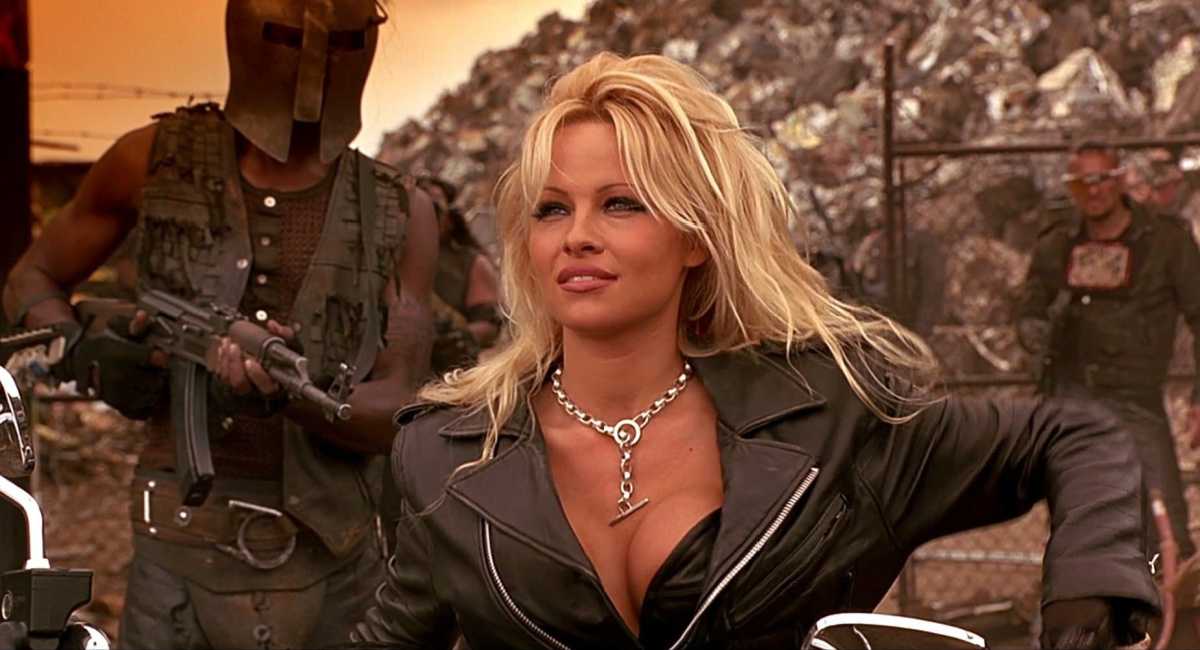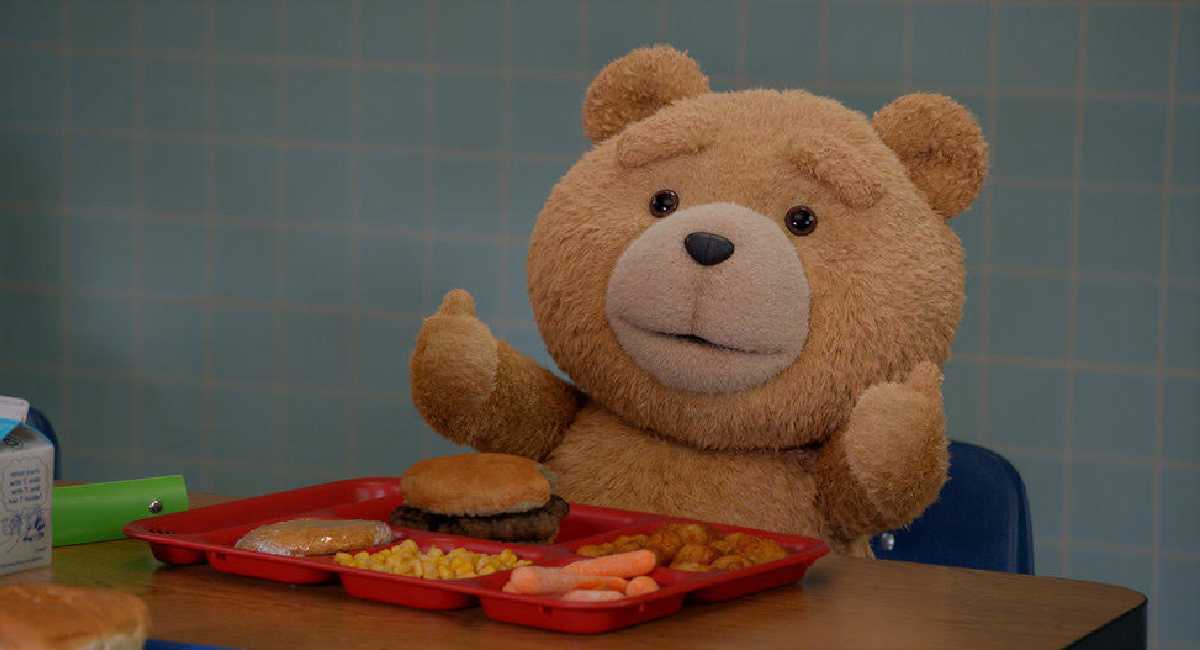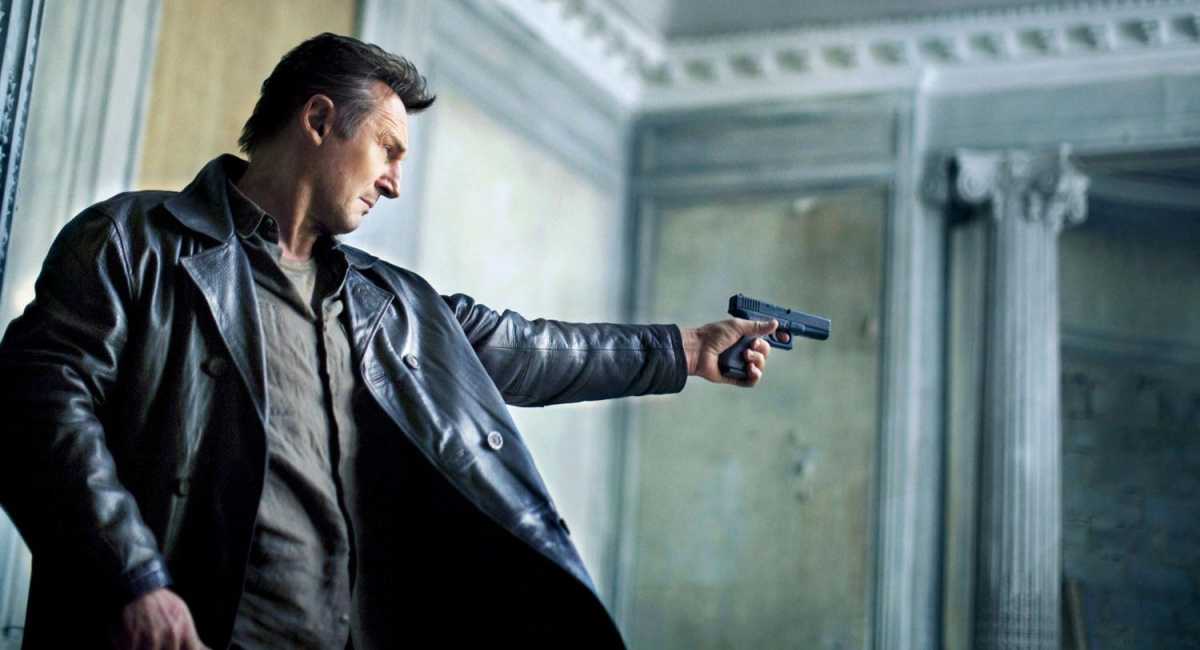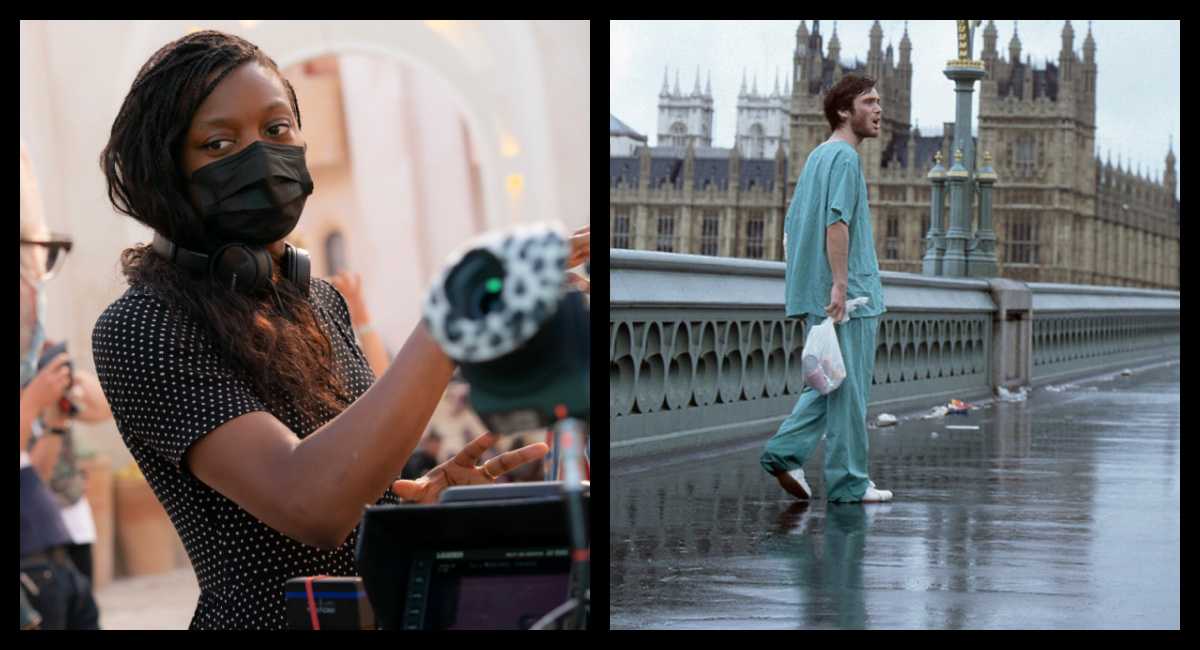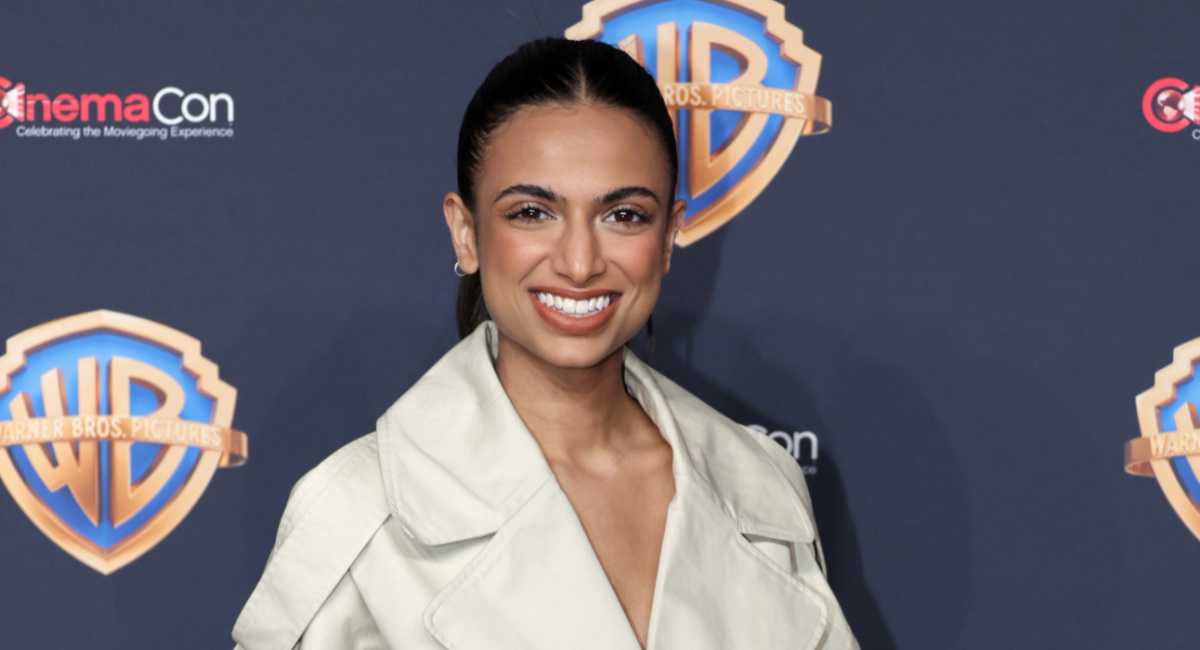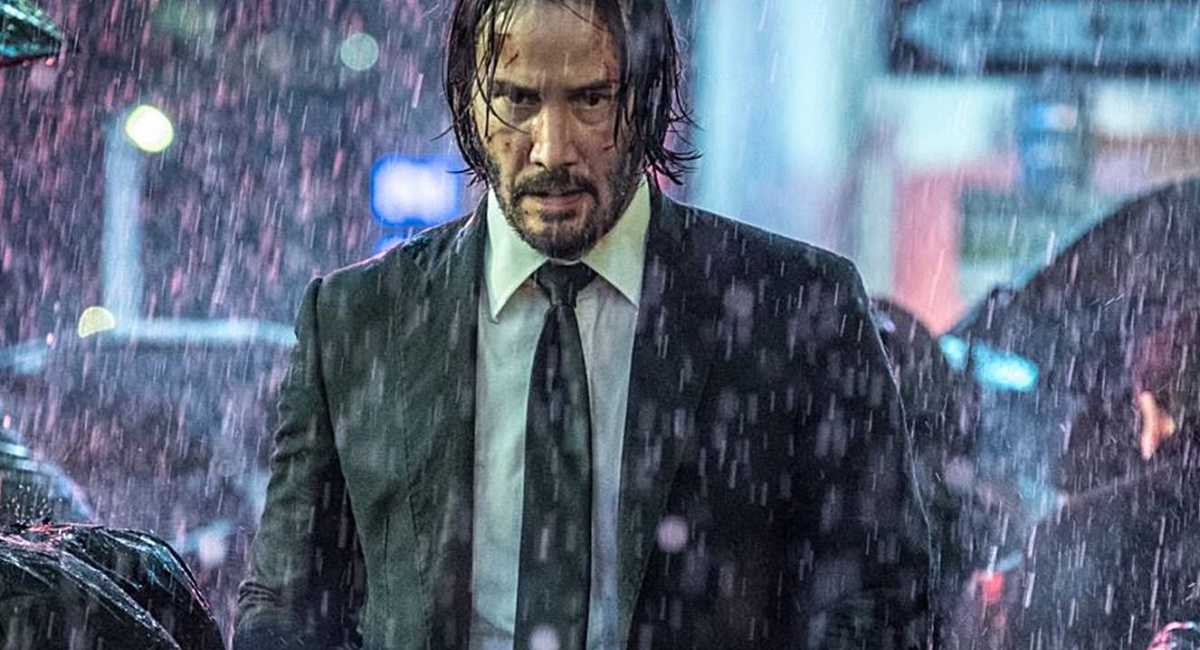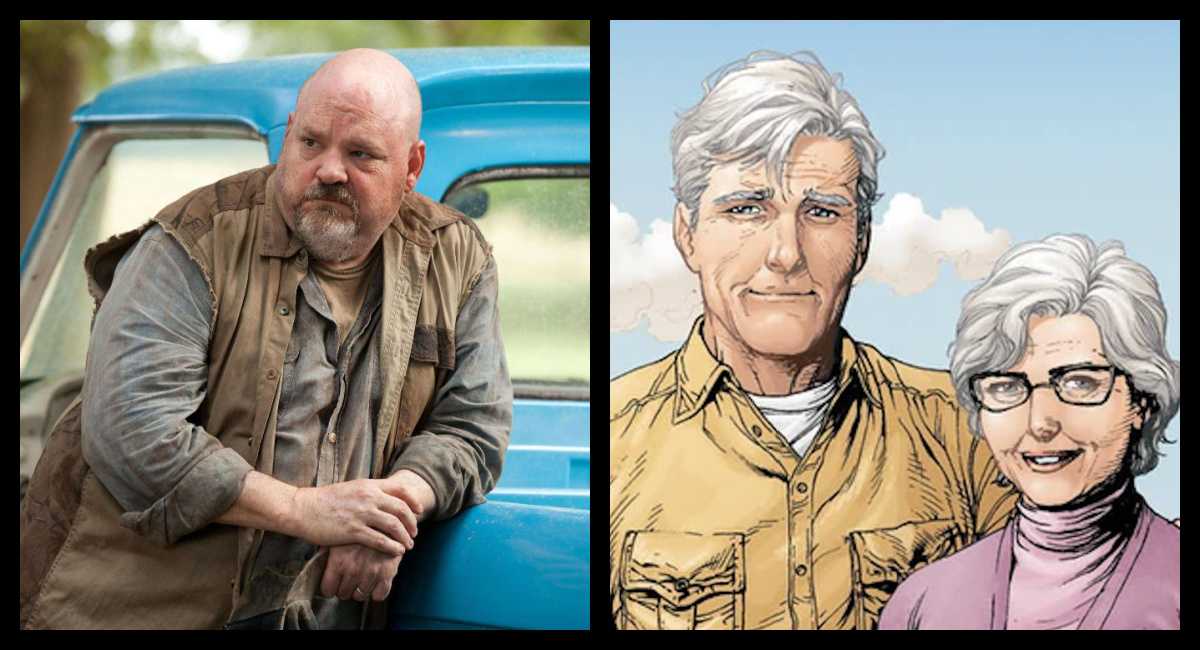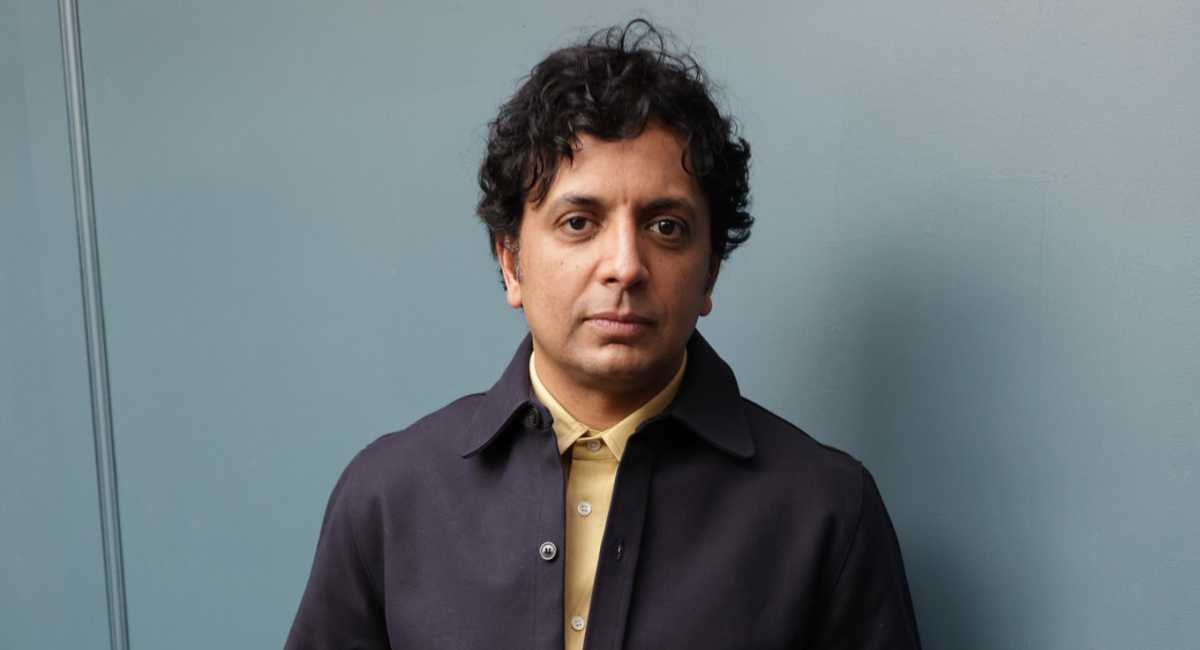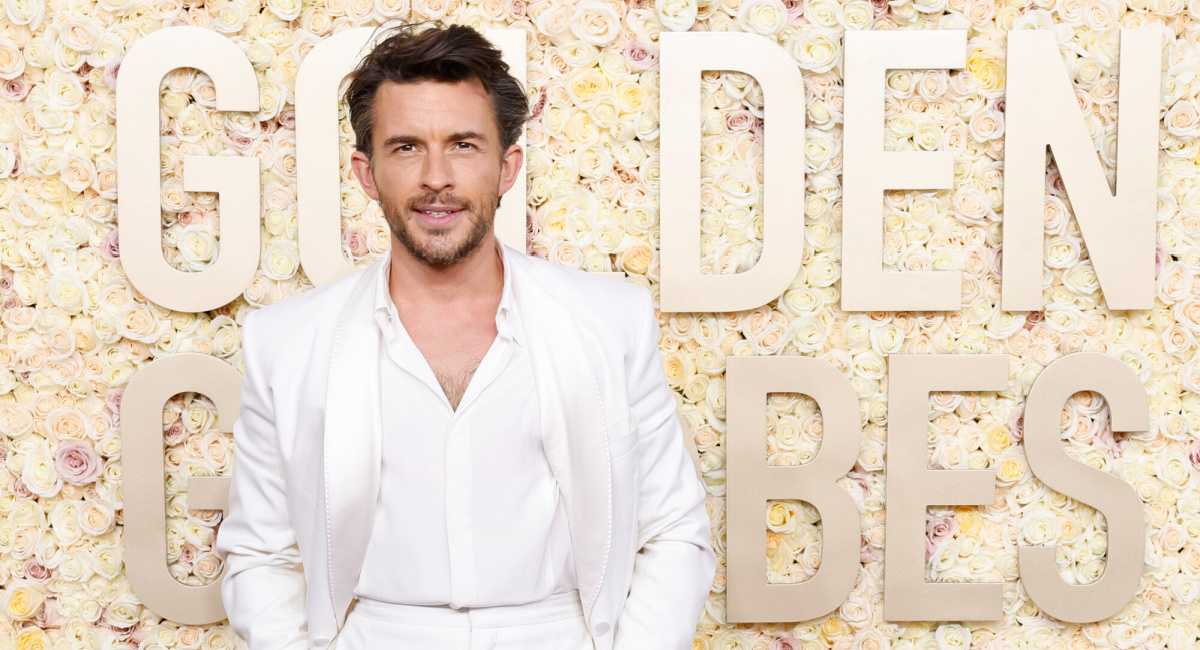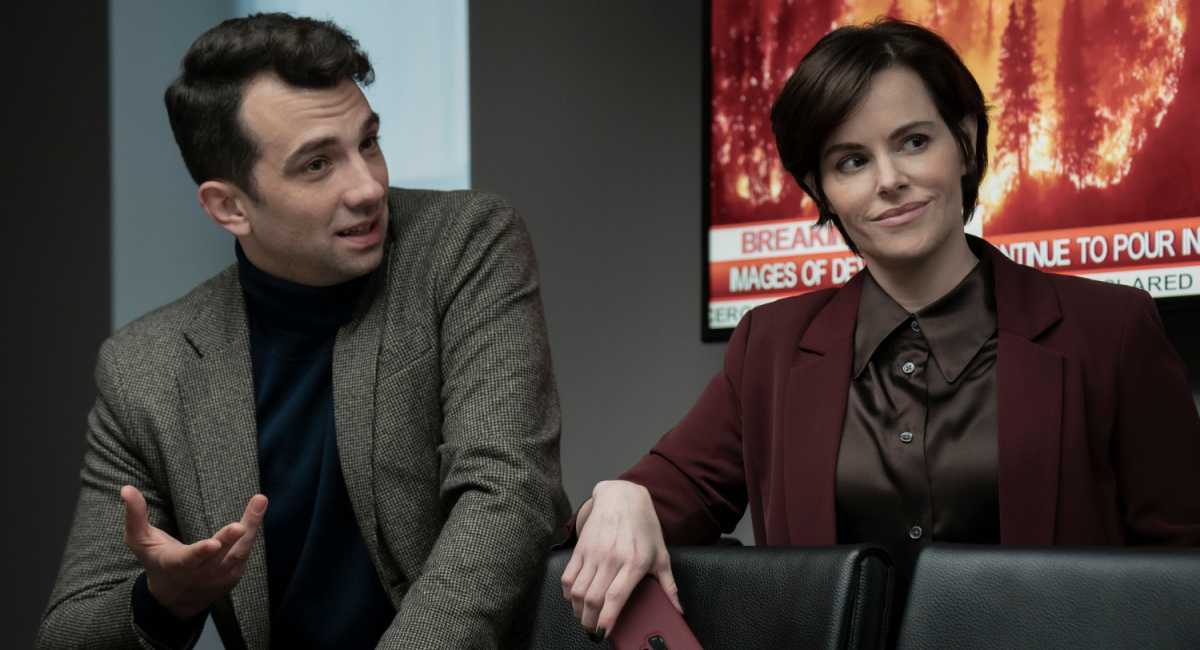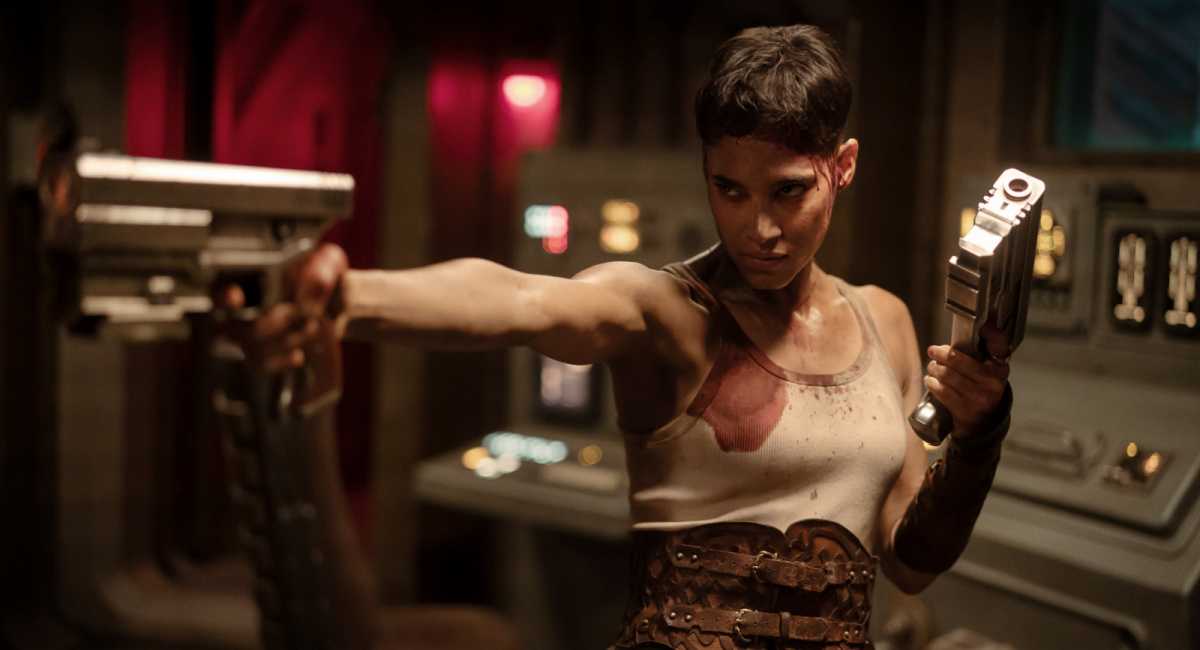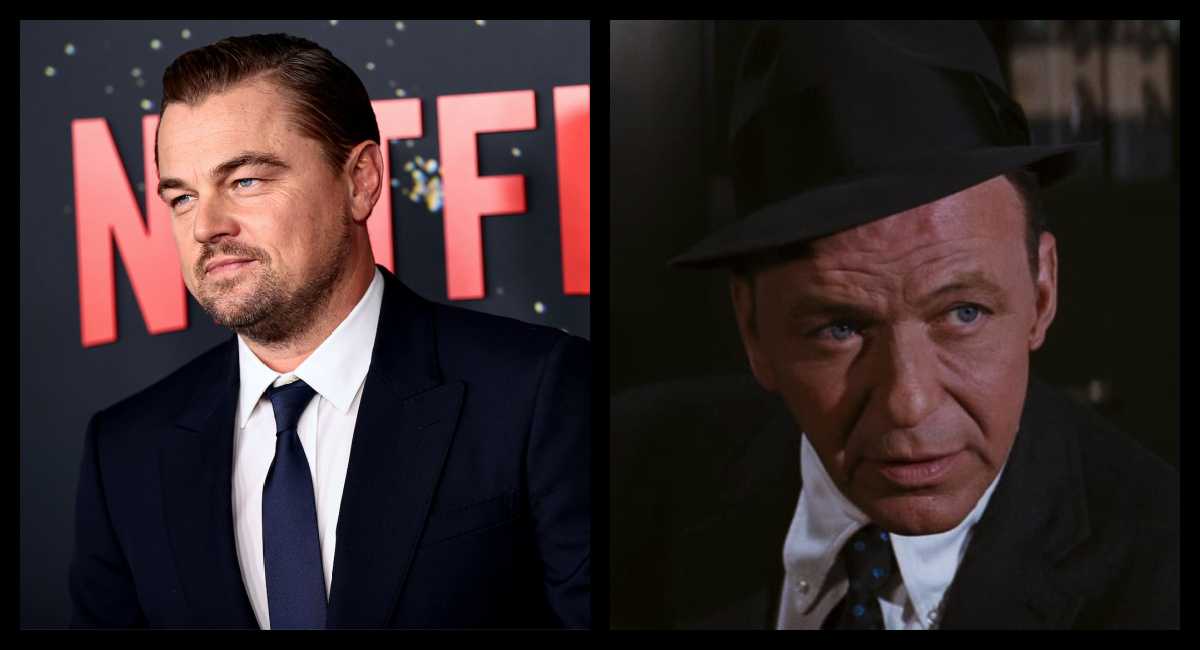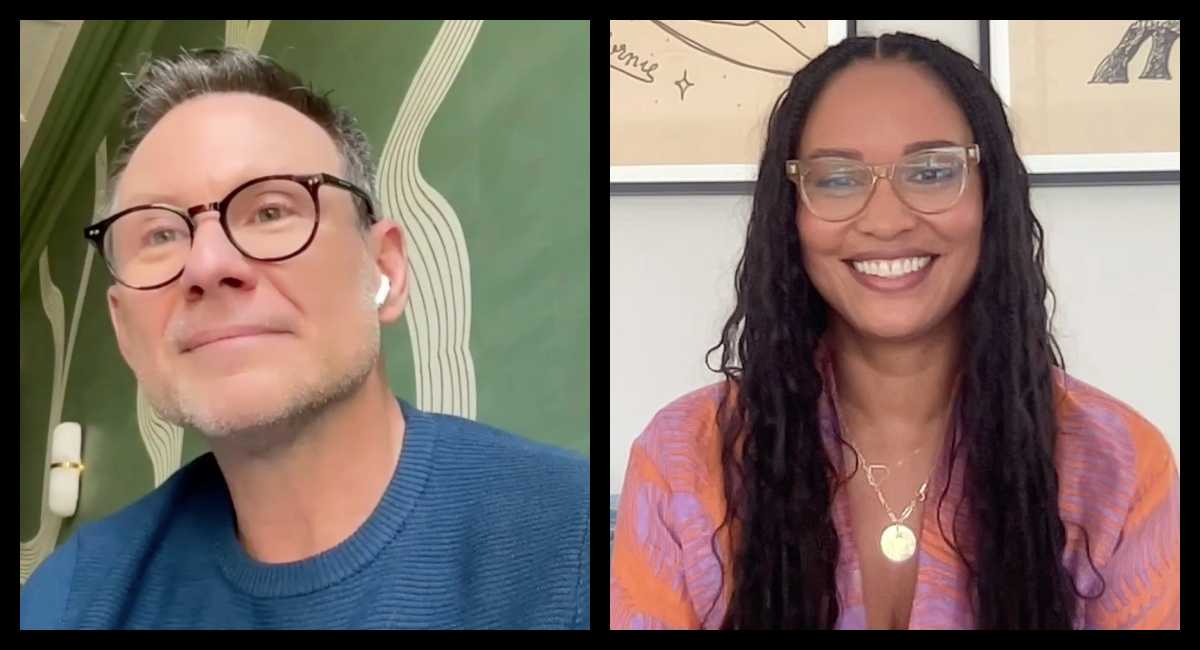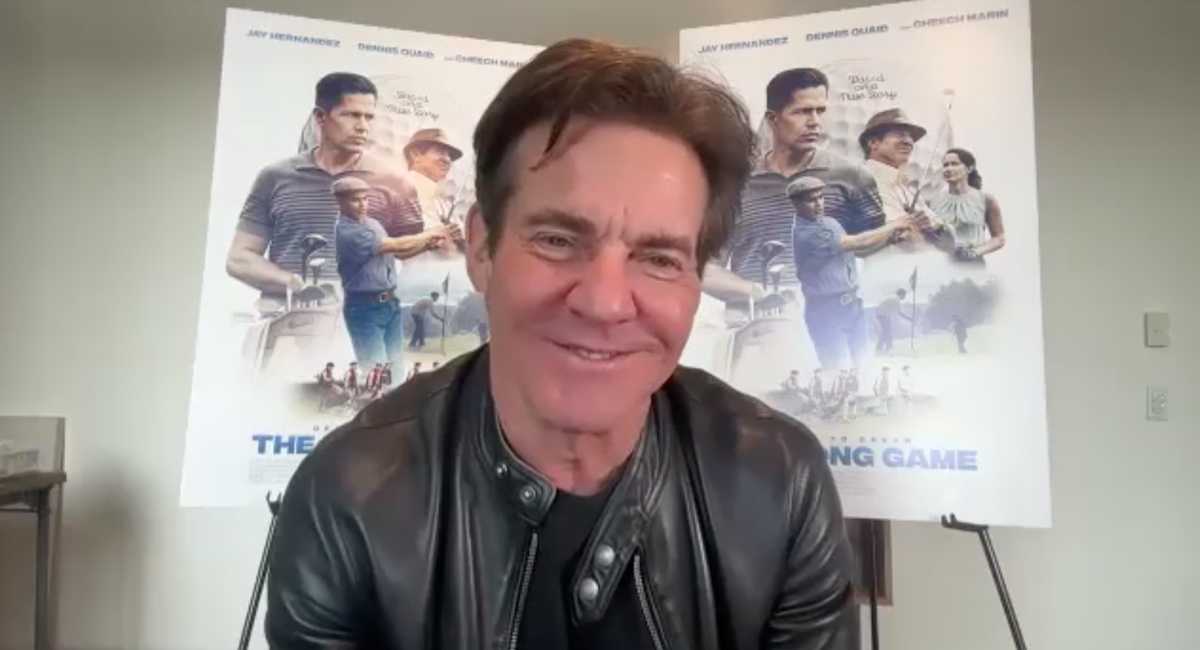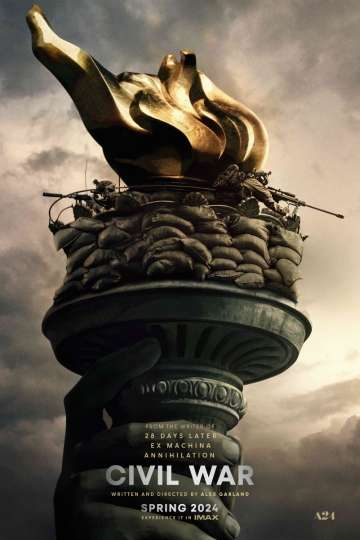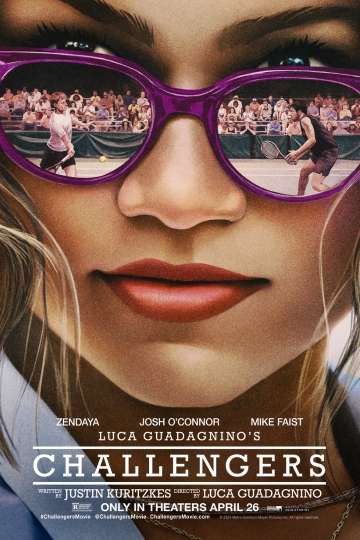'Blunt Talk' Creator Talks 'Remarkable' Patrick Stewart and Making Cable News Funny
After turning the journalistic, fiction, memoir and graphic novel worlds on their heads with his distinctively quirkily charming, self-analytical writing style, author Bored to Death," earning praise for unique characterizations and attention to comedic details.
Now the wordsmith is returning to TV with "Blunt Talk," a brand-new, decidedly non-memoir-ish series executive produced by Seth MacFarlane and set in the world of cable news punditry, starring Patrick Stewart as a barely-held-together news personality grappling with his many personal demons while aspiring, usually misguidedly, to do good in the world. To be blunt, Blunt's a trainwreck, and that's exactly where Ames like to start with a leading man.
Moviefone: Where was the point of inspiration that made you want to spend this much time in this world?
Jonathan Ames: I got an email from my agent that Seth MacFarlane was looking for an idea for comedy for Patrick Stewart. And this was very intriguing: a chance to work with Seth MacFarlane and a chance to work with Patrick Stewart. And the night before my phone call with Seth, I happened to be channel surfing, and I saw Piers Morgan on CNN. And I was kind of struck. I hadn't maybe looked at a news show for a while. I don't know why. I was kind of struck by like the electric blue pop of his set. I thought, "Wow, you know, Patrick Stewart would look really cool in front of such a background. Patrick Stewart could play a cable news host, and we could live behind the scenes." I'd always loved the show "Larry Sanders." And so for me, it wasn't so much about the news, but an environment where characters could gather, and we could study this central character, this Walter Blunt.
As far as creating Walter and figuring out who he was, keeping it of the world, but also funny, what did you want to say with him?
Well, through this character, I wanted to create a hero. Maybe a deluded hero, maybe a Don Quixote, but someone who would like to do good in the world, to take his position and try to help humanity in some way, because I like to create characters that you root for and I want the viewer to enjoy rooting for these characters, to love them and I guess maybe one of the original definitions of the word catharsis, to experience catharsis. Are they going to make it? Am I going to make it? And then creating a world around him of people who have issues and problems, but they try to help each other with these issues and problems.
So again, wanting to create something where human beings feel less alone, and that there are characters out there like this. And then ultimately, always having the goal to entertain, to create an entertainment. I see myself as a clown, so the rationalization for my existence is to maybe, in my own way, contribute by making a few people -– who have access to premium cable -– laugh a little. And so, then there's just the joy in making something. So I'm in the arts to entertain.
I'm sure you were confident that Patrick Stewart could do just about anything, but he's just brilliant in this role. When did you realize there was a real special alchemy between actor and character here?
I think the very first time we heard him reading the script. We rehearsed, and also, his immediate chemistry with Adrian Scarborough's Harry. I just think from the get go, he just was this man. And it seemed special from the very first shot, from the very first rehearsal.
What did you get to learn about Patrick, himself?
I think it was really wonderful. I mean, all the actors we worked with are talented, gifted, and hard working. But just the commitment that Patrick brought to every scene, this training, this attention, that perfectionism. So I think that was really remarkable to watch day after day, how much he brought to this continuously, and brought to his fellow actors as a listener, a responder. So it was like launching a great athlete or a great dancer, and just very impressive, day after day.
As you dug into the news talk format, what were things that you found there that you wanted to explore or tweak?
Yeah, that's a good question. I guess I was more into these characters than the world of the news. And in later episodes, we begin to address serious topics like the death penalty, genital mutilation. We come back to the environment. The impact of the Internet on journalism. PTSD. Shifting human sexuality. So I enjoy having this bully pulpit myself in a comedy, to be able to actually look at some important topics. And it's kind of like the iron fist in the velvet glove: it's a comedy, but we were bringing up these issues. So I think my observations of the news world -– I don't think I was so fascinated by anything so much that, but I was more intrigued by [the film] "Network," and the idea of news as entertainment and the idea of an eccentric newscaster. So I think it was more about those things rather than being intrigued by what goes on actually at Larry King or these kind of shows.
Are you still intrigued by like a cocktail conversation with Piers Morgan, and see what he might have to say?
Oh, sure. I would love to meet him. I would love to see what he thinks of the show. And I'd love to get him on the show.
What do you love about the TV format?
Well, having come from the world of books, I really like the opportunity to make some really fun images. To make moving pictures. Whether it be having cars that are beautiful colors, to having a silly sword fight scene like out of Peter Sellers. To doing a beautiful shot of the Venice Canals. Splitting the screen in two and having two Walter Blunts. Later episode, we pay homage to Laurel and Hardy on the staircase with the piano. So we shot out in the desert, and I really liked getting these beautiful desert shots. So I really like coming up with these visuals and trying to pull them off.
You have such a deep bench in your ensemble. Tell me about assembling your cast. Was it difficult or easy to get that talent all in one place?
Well, I don't know about easy, but Jacki Weaver was interested in being in it. And so I met with her, and we talked. And I guess I sold her on the idea of doing it, so that was like a first big coup. And then I saw [Timm] Sharp audition, and I thought he was fantastic. I met Dolly [Wells] in New York, but then had her come audition. I just was drawn to these actors who are also interesting human beings, and I think they bring that to the characters. Patrick Stewart had worked with Adrian Scarborough and had worked with him, so it all sort of came together. I do all the casting for the show with my fellow producers, but ultimately, I make the choices. And I kind of used this Lillian Gish principle, which I had heard that she said, "Movies are about faces and music." And so I always try to look for interesting faces in the smaller parts or the larger parts. And then interesting faces could translate as interesting human beings. Who isn't interesting? Everyone's interesting, but a combination of interesting face, acting, being able to be vulnerable -– these are, I guess, some of the qualities that I look for. And yeah, we just pulled together this beautiful ensemble.
Seth has characterized his role as just making the introduction and letting you guys run with it. What has been interesting about being in business with him?
Well, he made all this possible by introducing me to Patrick Stewart. I should have done something on the panel about, [singing] "Matchmaker, matchmaker, make me a match..." So he very much played matchmaker between Patrick and I. And then, yeah, he's just kind of been like, "Hey. This is great. Keep going, keep going." And then he's been very busy with his own stuff.
So I think he's a fascinating fellow. He's one of the most successful people in the industry, but he's really just a humble, sweet guy who wants to make interesting work. And so I'm just very lucky to get to associate with him and find him personally, kind of fascinating. In some ways, he's a little bit like a Gatsby figure. He catapulted to such levels of success at a fairly young age, but he wants to keep experimenting and trying new things. And also, he's got a variety of talents. He sings. He dances. Voices, drawing, I mean, he really is a Renaissance man.
And that relationship with Seth and Patrick is so interesting because he's such a fan of "Star Trek." And to see that they've become friends, that's got to be kind of fun to see that happening in front of your eyes?
Yeah, well, I mean, they've been working together long before I came on the picture. They've just been working on "Family Guy" for years. And I think that did come out of Seth being such a Trekkie. But yeah, Seth just adores Patrick, and vice versa.


